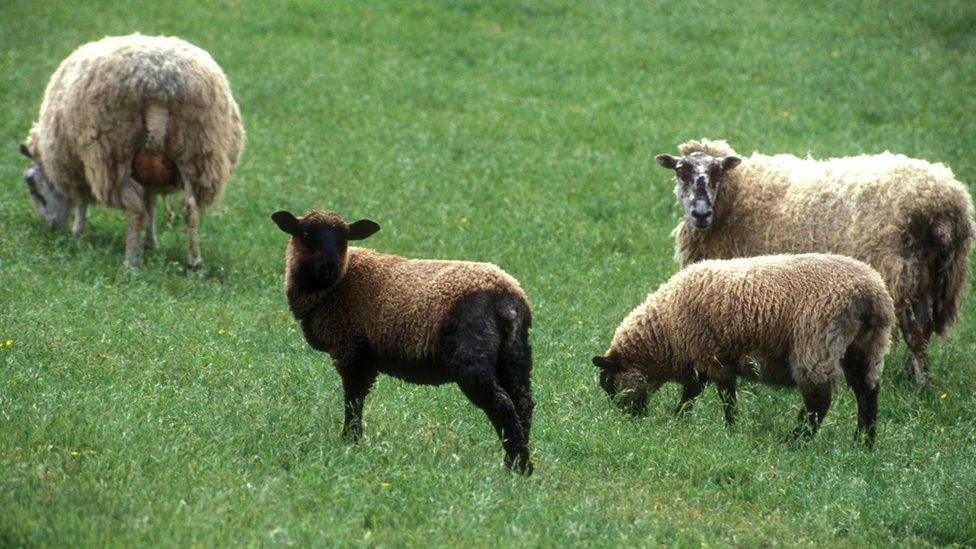Farming subsidies 'could be shared more evenly'
- Published
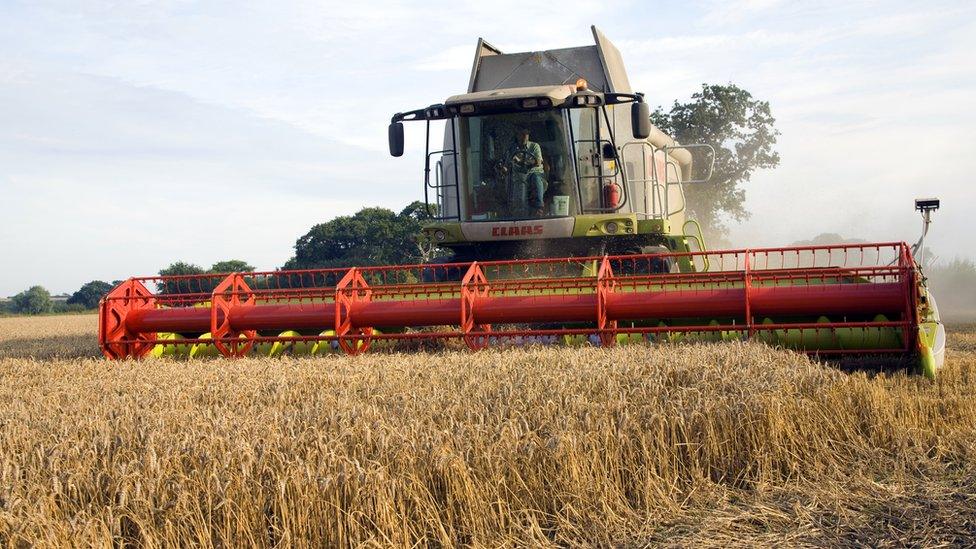
Edwin Poots says he wants to support people who are reliant on farming for a living
Farmers in receipt of large subsidy cheques could see their payments reduced under new rules being considered by the agriculture minister.
Edwin Poots made the comments as he outlined a vision for future farm policy after Brexit.
He said one of the things he was examining were the rules around how much support farm businesses could receive.
At present, direct support is capped at the equivalent of €150,000 (£134,000).
Other financial supports are also available meaning some farmers can exceed this amount.
Mr Poots said he would ultimately like to see the money shared out more evenly.
He told Stormont assembly members that he would also like to see a minimum amount of farming, which people would have to do in order to qualify for payments.
"I want to support people who are reliant on farming for a living," he said.
"If someone is receiving large amounts of money into the hundreds of thousands then they are somewhat less reliant than perhaps people who are operating on £15,000 of profit.
"And it's hard feed your family and keep a home with that kind of profitability."
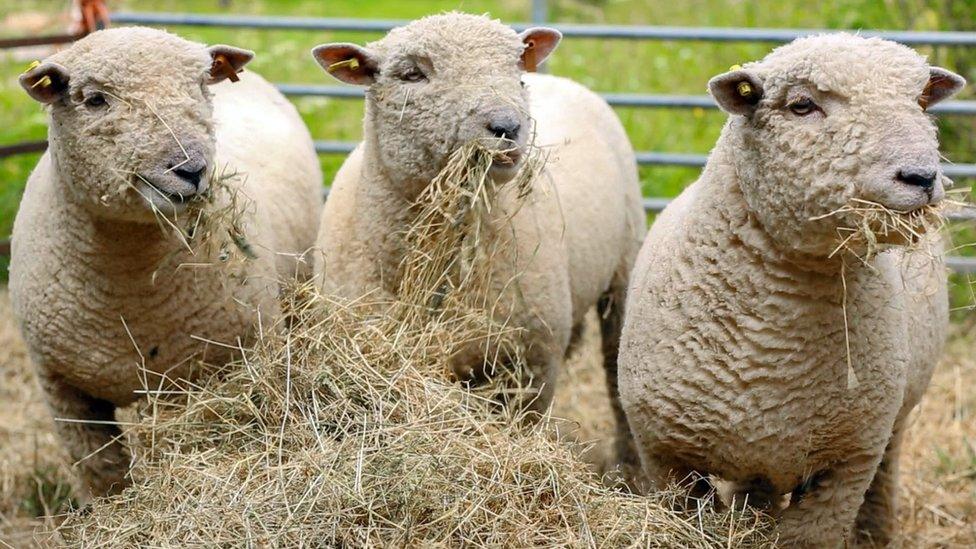
The agriculture minister said any changes to subsidy levels would not be made in 2021
He said he had sought and received reassurances from Treasury that the annual £293m of support for NI farmers would remain for the lifetime of this Parliament.
Mr Poots said any changes to subsidy levels would not be made in 2021 but he was looking at them for future years.
He said he would have liked to have developed a bespoke farm policy for Northern Ireland but there was insufficient time ahead of the next assembly election in 2022.
He said the UK Agriculture Act, in which Northern Ireland has taken powers, provided for flexibilities on how things were done.
Protein crops
The minister said he intended to move away from area-based payments ,where farm subsidies are worked out depending on the amount of land owned.
Mr Poots said he did not believe the mechanism would deliver the "outcomes and the agriculture industry" Northern Ireland needed.
But he said he wanted to explore the need for a basic resilience payment based on farm size which could provide a "safety net".
Mr Poots told the assembly he would bring forward schemes that improve farm profitability and environmental sustainability.
These include payments for those keeping suckler beef cattle and planting protein crops such as beans that stored nitrogen and could be used for animal feed.
He said he wanted to see better environmental outcomes go hand-in-hand with improved farm profitability and that both were mutually dependent.
Hill farmers he said were better placed to carry out some of the environmental schemes including re-wetting upland peat bogs to store carbon and prevent flooding.
Mr Poots said the aim was productive, environmentally-sustainable farms which were better able to cope with market shocks and weather events, and received a fairer deal for producing food.
- Published13 October 2020
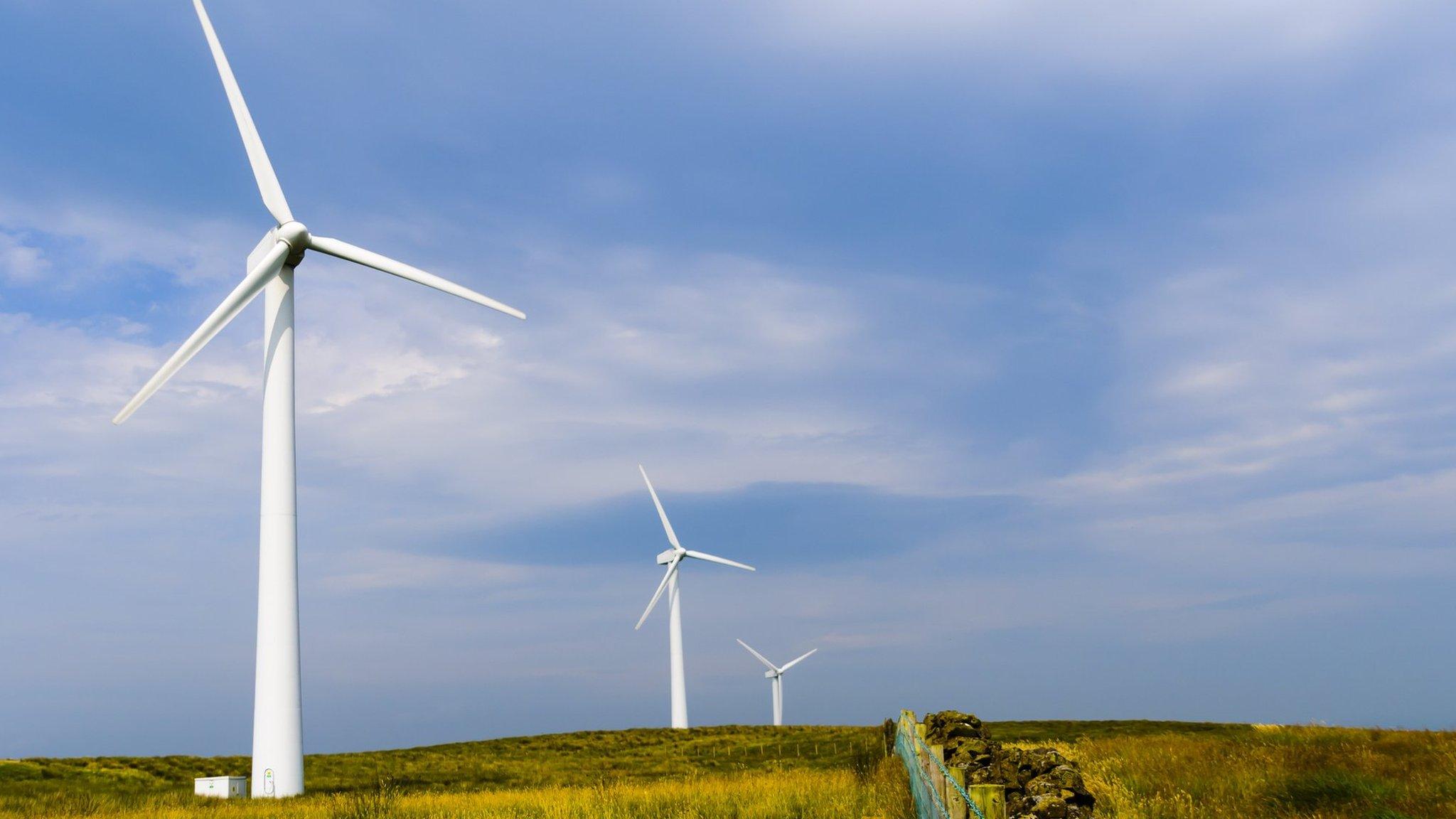
- Published2 October 2020
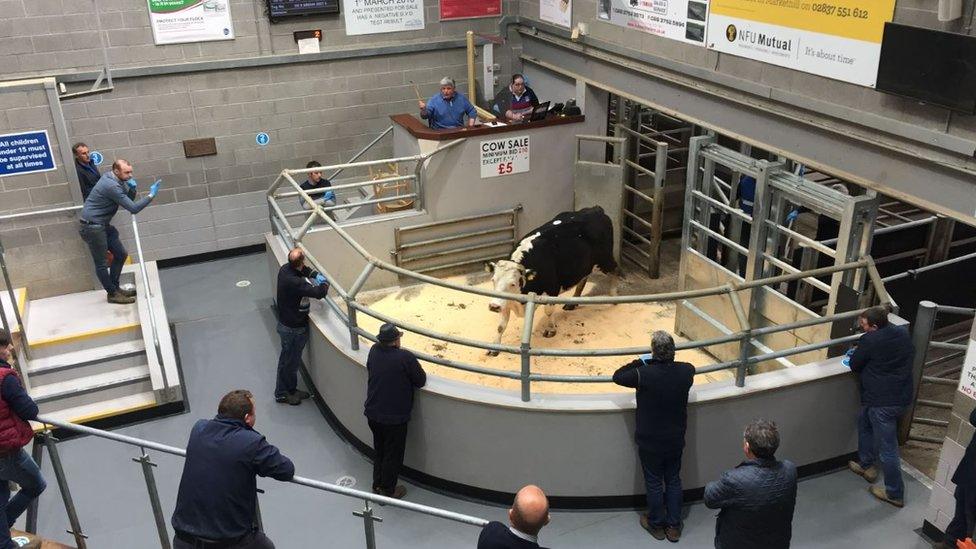
- Published22 September 2020
